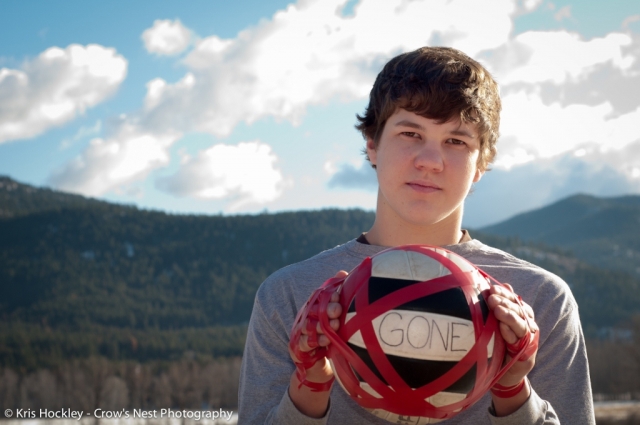High school student files human rights complaint over politics of sports
A 16-year-old high school student launched a human rights complaint against B.C. School Sports and the Ministry of Education for discrimination after losing his chance to play volleyball this year.
Myles Christman, from Christina Lake, B.C., was ruled ineligible for competitive team play this year by B.C. School Sports (BCSS) when he moved to a new school to participate in their team. On Dec. 6 the same association cancelled his appeal. With the appeal cancelled, Christman won’t have an answer why he couldn’t play this year, and no decision for next year.
“Barring anything unforeseen we would like to get resolution to this so that we can proceed next year,” said Martin Christman, Myles’ father. “I’m just looking for some kind of a partnership between the member school, the family, and BCSS to find a way so that this young man can play. Instead we just ran into this force that we just can’t reckon with, they’re untouchable and they’re not interested in partnering with anybody. It’s [Myles’] passion and his dream and we’re just simply [trying] to support it.”
Myles wants to play volleyball competitively. In order to play, he had to move away from home to attend a school over 100 kilometres away – the nearest high school offering a volleyball program at the time.
Christman normally would attend the Grand Forks Senior Secondary School, but the district does not offer volleyball. So he moved in with a player on the team at Mount Sentinel High School in South Slocan, near Nelson, anticipating that he would be allowed to play.
But when the coach of the team applied for what he expected to be a routine approval, BCSS denied the request and suggested he attend a school in Castlegar, 20 kilometres closer, but only under the condition that Christman commute to the school – a 98 kilometer one-way drive over a mountain pass with extreme weather conditions.
The B.C. School Sports regulation, created to prevent team stacking by coaches in areas where schools are located close to each other like in the Lower Mainland, prevents new students from playing competitively for one year after a move. The rule has allowances for special situations which are approved on a case by case basis.
Susan Keenan, executive director for BCSS was contacted but refused to comment on the case.
Christman’s lawyer, John Kennedy who took the case on pro bono, said it took the association an hour to deny Christman’s application.
“The rules specifically state that the primary consideration for BC School Sports is to prevent unfair, inequitable competition,” Kennedy added. “In fact it says when a child doesn’t have a team at his home school, which Myles doesn’t, they shall allow him to play. I just want a reason and they cannot provide one. They just clam up.”
After losing the chance to participate in season play, Myles was devastated and returned home. But he and his family have not slowed down on their efforts to hold BCSS accountable for their decision.
“Part of the reason we’re pursuing this so hard is, part of it is for Myles, and part of it is for other kids,” Kennedy commented. “We want to see what we can do about this [regulation]. They’re [filing this] saying look, this is the place of origin in this particular case where the discrimination arises against rural kids.”
A spokesman for the Ministry of Education, said that the Ministry has no authority over BCSS and cannot influence their decisions.
So as his fellow team mates live their volleyball dreams, enjoying the highs and lows of competitive sport, 16-year-old Myles Christman sat at home missing out on the entire experience. His only hope for next year is a resolution that’s not likely to come soon.






















